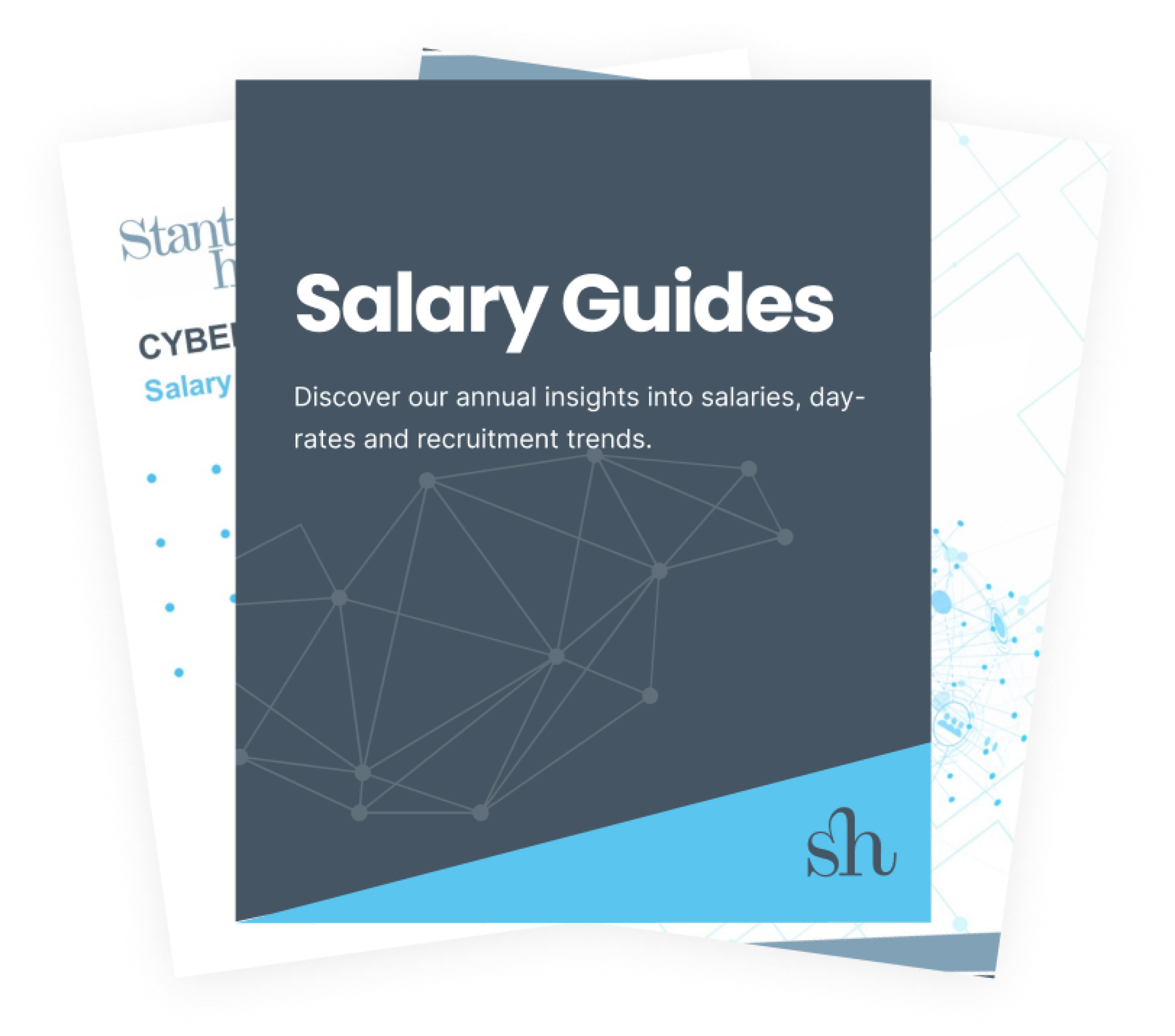
How ESG Positively Impacts People, Planet & Profits
In an era of economic uncertainty, social transformation, and climate urgency, the global geopolitical context has heightened the importance of Environmental, Social, and Governance (ESG) principles. ESG not only ensures responsible business practices but also strengthens Diversity & Inclusion initiatives (a fundamental part of the "Social" component in ESG) making it an essential pillar of modern talent management and attraction strategies.
The integration of ESG strategies into business operations is therefore no longer a choice but a necessity, especially as governments, investors, and employees demand greater accountability and purpose-driven practices. Amid rising geopolitical tensions, shifting regulations, and a polarised world, ESG has emerged as a critical framework to navigate uncertainty while driving positive outcomes for people, the planet, and profits.
The ESG-Talent Connection: Attracting Purpose-Driven Professionals
The priorities of today’s workforce have evolved significantly, with Millennials and Generation Z increasingly seeking employers whose values align with their own, particularly concerning sustainability and social impact. According to Deloitte's 2024 Global Gen Z and Millennial Survey, nearly nine in ten Gen Zs (86%) and Millennials (89%) assert that having a sense of purpose at work is crucial to their job satisfaction.
Moreover, these generations are not hesitant to act on their convictions; half of Gen Zs (50%) and over four in ten Millennials (43%) have declined assignments that conflict with their personal values. Similarly, 44% of Gen Zs and 40% of Millennials have turned down potential employers for the same reasons.
Companies that embed Environmental, Social, and Governance (ESG) principles into their core operations gain a significant advantage in the talent market. This approach transcends environmental sustainability, fostering workplaces where employees feel their contributions serve a purpose beyond profit. By aligning corporate values with those of their workforce, organisations can attract and retain purpose-driven professionals committed to making a positive societal impact.
The Business Case for ESG: Beyond Talent Acquisition
Businesses that integrate ESG into their core strategies enjoy better relationships with stakeholders, including investors, customers, and communities.
McKinsey's 2023 report, ‘Diversity Matters Even More,’ indicates that companies in the top quartile for gender diversity are 39% more likely to achieve above-average profitability compared to those in the bottom quartile. Further, a 2023 analysis by Harvard Business Review found that companies with strong ESG credentials had 15% higher employee retention rates and reported 12% greater productivity.
Aligned with this thinking, businesses like OVO Energy have put this agenda at the core of their talent strategy. Hannah Briscoe, Head of Talent Acquisition at OVO commented:
“At OVO we're building a place where everyone belongs. Where diversity is celebrated, inclusivity is championed, and everyone feels valued and supported. Because a diverse team brings unique ideas to the table and better reflects our customers. We want to make sure our community represents the whole of society. That's why we're using real data and working towards clear, actionable targets within our hiring strategy.”
What’s more, Purpose-Driven Companies Attract Capital. Increasingly, investment firms are choosing to allocate their capital towards companies with robust ESG strategies, seeing them as not only ethically sound but also as generators of long-term value and resilience.
The numbers tell the story: recent projections indicate that global ESG assets are expected to surpass $40 trillion by 2030, accounting for over 25% of the anticipated $140 trillion in total assets under management. This significant growth reflects a broader shift in investment strategies, with asset managers globally aiming to increase their ESG-related assets under management to $33.9 trillion by 2026, up from $18.4 trillion in 2021.
This surge in ESG investment is driven by a growing understanding that companies with strong ESG practices tend to outperform their peers in the long run. Research from Morningstar in 2023 found that 77% of ESG-aligned funds performed better than their non-ESG counterparts over a five-year period, proving that purpose and profit are not mutually exclusive.
In 2023, JP Morgan Chase set aside $2.5 trillion for sustainable development over the next decade, including investments in clean energy, affordable housing, and other initiatives that align with ESG goals. This massive commitment to sustainability highlights the bank’s belief that companies focused on positive social and environmental impacts are more likely to thrive in a rapidly changing world.
For employers, this means that D&I should be more than just a checkbox - it should be deeply integrated into the company’s culture and hiring practices. An effective D&I strategy is seen as a key part of a company's ESG commitment, demonstrating that the organisation values its people and is committed to creating an environment where everyone can thrive.
Companies that pay lip service to D&I without making tangible changes often see their efforts backfire. It’s no longer enough to celebrate Pride Month or post about Black History Month; candidates and employees want to see how D&I is woven into the fabric of the organisation.
The Backlash Against DEI and Implications on ESG
In 2024, the principles of Diversity, Equity, and Inclusion (DEI) faced increasing scrutiny, particularly in the United States. High-profile figures such as Elon Musk and Mark Zuckerberg have questioned the validity and necessity of DEI initiatives, often labelling them as part of a broader ‘woke capitalism’ narrative. This backlash reflects a growing cultural divide around the role of corporations in addressing societal issues, sparking debates that could influence the future of Environmental, Social, and Governance (ESG) strategies.
The backlash against DEI has been fuelled by concerns over whether such initiatives align with business priorities or represent overreach into political or cultural domains, driven by the recent challenging economic environment. Critics often argue that DEI programmes impose unnecessary costs, limit meritocracy, or alienate certain groups. This discourse has gained traction in an increasingly polarised environment, with some States introducing legislation to curtail corporate DEI practices. Only last week, President Trump ordered all federal employees involved in DEI programmes to be put on paid leave. For businesses operating in this landscape, the shifting attitudes present both reputational risks and operational challenges.
This backlash poses significant implications for the ‘Social’ pillar of ESG. Companies may face external pressures, including reduced investor confidence, boycotts, or public criticism, particularly if their DEI initiatives are perceived as inauthentic or overly politicised. Internally, employees may grow sceptical of leadership’s commitment to inclusivity, especially if initiatives appear to be performative rather than impactful.
While the DEI backlash may be a reflection of today’s polarised environment, it also underscores the importance of authenticity and consistency. In an era of heightened scrutiny, it is those who lead with purpose and authenticity who will inspire trust, loyalty, and long-term success.
Linking Executive Compensation to D&I and ESG Goals
Tying executive bonuses to progress on D&I metrics is one such way to set a powerful tone - ensuring leadership is committed to driving real change. Here are three examples:
Microsoft: Microsoft has made a significant commitment to improving diversity in its workforce. The company links part of its executives' annual bonuses to progress in increasing diversity numbers among its leadership team, improving representation of women and racial minorities. This includes measuring year-on-year improvements and setting clear targets.
Unilever: Unilever has taken a holistic approach to integrating ESG into its business strategy, including linking executive pay to progress in achieving its environmental and social goals. Unilever’s management incentives are now tied to the company’s sustainability agenda, such as reducing its carbon footprint, cutting plastic use, and improving gender balance across its leadership. Unilever's approach demonstrates that sustainability and social responsibility can go hand in hand with financial performance, encouraging executives to prioritize long-term impact alongside short-term results.
Mars Inc: The company has made sustainability goals as important as financial goals by linking 20% of overall executive remuneration to sustainability targets, resulting in an 8% reduction in carbon emissions in 2023.
How to Get Started: Practical Steps for Employers
While leading companies are setting the standard by linking ESG goals to executive compensation, embedding ESG and Diversity & Inclusion (D&I) principles into your talent strategy doesn’t have to start there. Here are practical, actionable first steps:
· Conduct a Materiality Assessment: Identify which ESG issues are most important to your business and your stakeholders, including employees. This will help you focus on areas where you can make the most impact.
· Set Measurable Goals: Whether it’s reducing your carbon footprint or increasing the representation of diverse groups within your leadership team, setting clear, measurable targets will guide your progress and allow you to report on achievements transparently.
· Engage Employees in the ESG Journey: Create opportunities for employees to get involved in ESG initiatives, such as volunteering, sustainability projects, or internal D&I committees. This involvement fosters a sense of ownership and pride in the company’s mission.
· Communicate Success & Challenges: Share your progress with both internal teams and the broader market. Acknowledging challenges as well as successes demonstrates authenticity and builds credibility with your audience.
As we navigate a competitive talent market, it is clear that ESG offers a pathway for companies to stand out. It’s a strategy that not only aligns with the ethical demands of today’s workforce but also positions businesses for long-term resilience and success.
Sources:
-
Harvard Business Review: Two Factors that Determine When ESG Creates Shareholder Value
-
MorningStar: Global ESG Funds Attract $10.4 Billion in Q3 2024



















